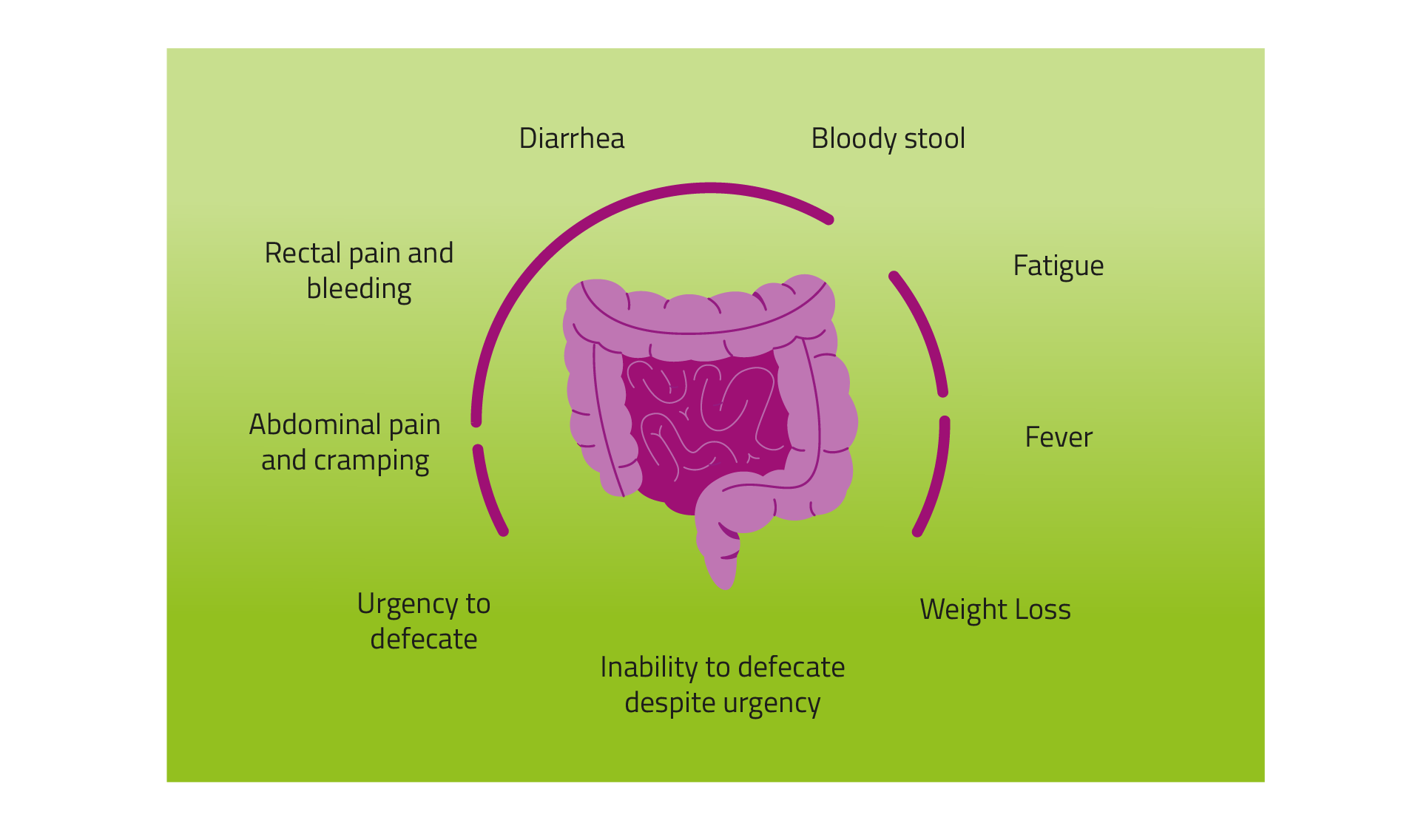Types of IBD
Ulcerative Colitis
Ulcerative colitis is a chronic condition that causes inflammation and sores in the lining of the large intestine. Unlike Crohn’s disease, it affects only the colon and the rectum. The disease can worsen over time, but its severity and course can vary unpredictably. People with ulcerative colitis may have periods of remission when they have no symptoms, and flare-ups when their symptoms are more severe.
Crohn’s Disease
Crohn's disease can happen anywhere along the digestive tract, from the mouth to the anus. It affects the deeper layers of the digestive lining and can show up as skip lesions between healthy areas. Crohn's often involves the small intestine, the colon, or both. Crohn’s disease is progressive, meaning it gets worse over time.
Ulcerative colitis and Crohn's disease are associated with similar symptoms:


